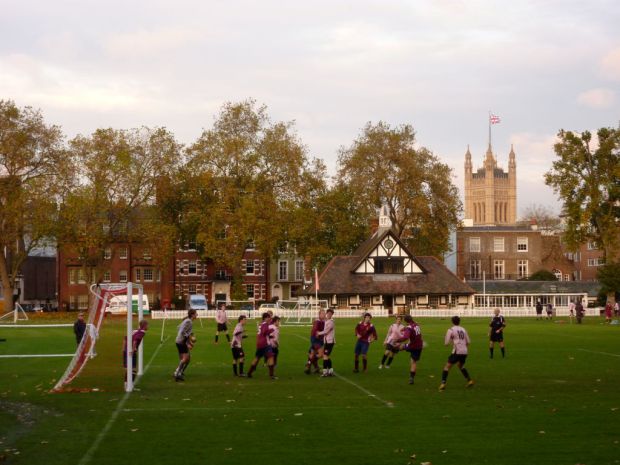King’s College London Mathematics School is precisely one year old. And on 13 August it woke up to AS-level results that make it one of the ten best state schools in the country. 97 per cent of students got an A in mathematics. 90 per cent of grades in maths and further maths were As. Students’ grades were, on average, two grades higher, across all their subjects, than would be expected from their GCSE results. As a governor, I bask in reflected glory.
Ours is a ‘free school’ sponsored by King’s, and it teaches talented, committed 16- to 18-year-olds. We select for potential, using our own test. But we also select by the education, and especially the quality of the A-level maths, that applicants could expect at their current school. Will coming to us ‘add value’? If not, someone else should have the place.
King’s Maths School, in other words, exists to nourish untapped mathematical potential. We believed that the country has a lot of it. And since 13 August, we have hard evidence that we were right.
Many students thrive on academic study. The surnames on our roll are London in microcosm: we’re not all Anglo–Saxon, nor all-Asian, and not even largely male. 43 per cent of our first cohort, all taking maths, further maths and physics, are girls, way above the national average. And there are no significant differences in the results achieved by different groups — not by gender, not by ethnicity, and not by whether students are eligible for Free School Meals, the school sector’s key poverty indicator.
These are seriously motivated students. Kim, for example, from a single-parent family, has a 90-minute commute each way, plus a job to help the family finances. She got AAA in maths, further maths and physics. For some, like Calvin, home is chaotic, and the school makes studying possible. From his GCSE grades, you’d have predicted two Ds for his maths AS-levels, not the two As he achieved. Calvin spends hours and hours on site, but that is nothing unusual. Getting these kids out of the building is a hard task.
So what follows? The first lesson should be obvious: great teaching delivers. Our school deliberately and of necessity hired teachers who are excellent mathematicians. They had to be very good at their subject. The whole rationale for a specialist school is that expertise — subject expertise — is a precondition for excellence.
The good teachers we could afford were mostly very young. They became truly effective through the teaching culture created by a superb head whose approach is shared with the best contemporary schools. As an academic and a university teacher, I find this an inspiration and also a source of shame: unlike academics, these schoolteachers think constantly about how they teach. They discuss, they analyse, they observe each other, they track their success in detail through the progress students make. That is why Glen, with huge potential but a C grade average at GCSE, went on to As. And why Kamil, predicted CCDD, could take 4 AS-levels and get As in them all.
So lesson two is that specialist schools work, not just because students find their tribe and learn from each other, but because teachers do the same. However, neither local authorities nor our successful and centralised academy chains are well suited to developing the small, specialist or quirky. Lesson three is the need for government to go on supporting individual start-ups and innovation, and not only work with the big guys.
And lesson four? We risk accountability overkill. The first year of a school’s life is harder than any of us imagined. Everything has to be developed from scratch. The top priority should be the quality of teaching but our senior team’s time was eaten up by other demands. Governors’ meetings were dominated by audits of statutory policies, worries over looming Ofsted visits, and duplicate financial reporting.
With a major university for a sponsor, the governors could offer some substantive help and, above all, reassurance: focusing on what was important wouldn’t bring disaster upon the school. That was our main contribution to the year’s success, and it depended heavily on our very special circumstances. It shouldn’t have been necessary.
Schools have objective external information available, from exams and past papers, about what students are achieving and what needs to improve. Academies have full annual audits. Piling up formal oversight is, in this situation, about risk-aversion, not reform. Its current scale deters others from doing what we did, and no wonder. Truly, this needs to change.
Got something to add? Join the discussion and comment below.
Get 10 issues for just $10
Subscribe to The Spectator Australia today for the next 10 magazine issues, plus full online access, for just $10.
Alison Wolf is the author of The XX Factor, and Sir Roy Griffiths professor of public-sector management at King’s College London.
You might disagree with half of it, but you’ll enjoy reading all of it. Try your first month for free, then just $2 a week for the remainder of your first year.














Comments
Don't miss out
Join the conversation with other Spectator Australia readers. Subscribe to leave a comment.
SUBSCRIBEAlready a subscriber? Log in